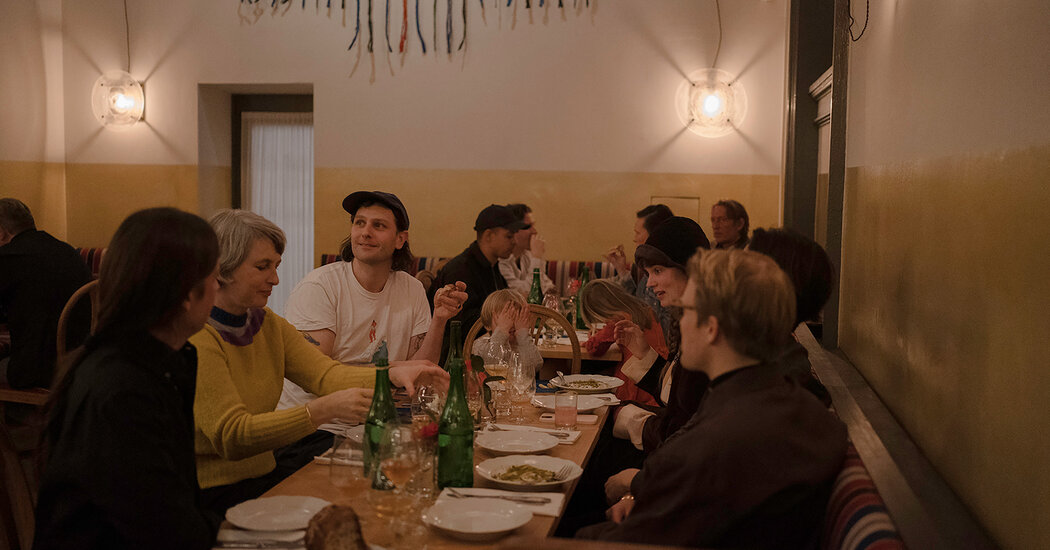
When the Danish chef Frederik Bille Brahe took over Apollo Bar & Kantine in 2017, it was an unassuming museum cafe where a person might grab a quick sandwich after seeing one of the contemporary art exhibitions at the Kunsthal Charlottenborg, set within the same grand 17th-century complex in central Copenhagen.
“Very quickly,” said the museum’s director, Michael Thouber, recently, “Frederik transformed it into a meeting place.” Thouber, 53, had been a regular at the since-closed seafood and vegetable-focused restaurant Havfruen, one of Bille Brahe’s small empire of casual but innovative restaurants and cafes across the city, and two years after his appointment at the institution, he asked the chef to revive the Apollo. Bille Brahe introduced a menu of elevated comfort food (a daily ceviche, homemade sourdough toast topped with Comté or ricotta and berries) and outfitted the airy interior with paint-splattered midcentury chairs and plaster-cast classical statues from the museum, attracting — along with more gallery goers — people from the art, design and fashion worlds. In the simple canteen behind the Apollo’s dining room, he began serving an affordable vegetarian midday meal to the students and staff of the neighboring Royal Danish Academy of Fine Arts. The Apollo became known, said Bille Brahe, for many things: “The terrace, the bar, blueberry toast, parties and fashion.”
But by 2020, the cafe’s success had begun to weigh on him. Bille Brahe, now 40, felt he’d become more of a manager, overseeing invoices and catering events, rather than the creative person he’s always strived to be. And then came the pandemic, which, he said, “forced me to rethink things quite radically”: to secure his businesses financially, he had to reorganize and scale up his popular all-day cafe Atelier September in the Gothersgade neighborhood — there are now three in the city — and in doing so he felt like he lost touch with the Apollo. His initial impulse was to leave it and do something completely new. But inspired partly by reading the 2016 book “Staying With the Trouble” by the American feminist theorist Donna J. Haraway — which recommends examining one’s past choices “and rather than discarding everything, adjusting things bit by bit,” explained Bille Brahe — he changed his mind. He decided to recommit to the Apollo and “to rediscover my gastronomic ambitions,” he said. In addition to other, more subtle changes, that meant shifting his focus away from lunch and breakfast and toward dinner.
The new Apollo, which opened in late February, still offers a small menu of seasonal lunch dishes, such as a citrusy green salad named for Bille Brahe’s wife — the model and fashion designer Caroline Brasch Nielsen, 30 — and a briny anchovy toast made with homemade bread. But the interior has evolved and the dinner service, which formerly felt more like a prelude to a night of dancing on the tables — as it often was — is, while not exactly formal, certainly more grown up. One evening in February, a week after it reopened, Bille Brahe decided to dedicate an evening to the friends, family members and collaborators who helped him pull off this transformation, allowing them to try the new dishes together. “My ambition now,” he explained, “is to say, ‘Hey, you can find me at the Apollo. It’s my home. It’s where I cook.’”


